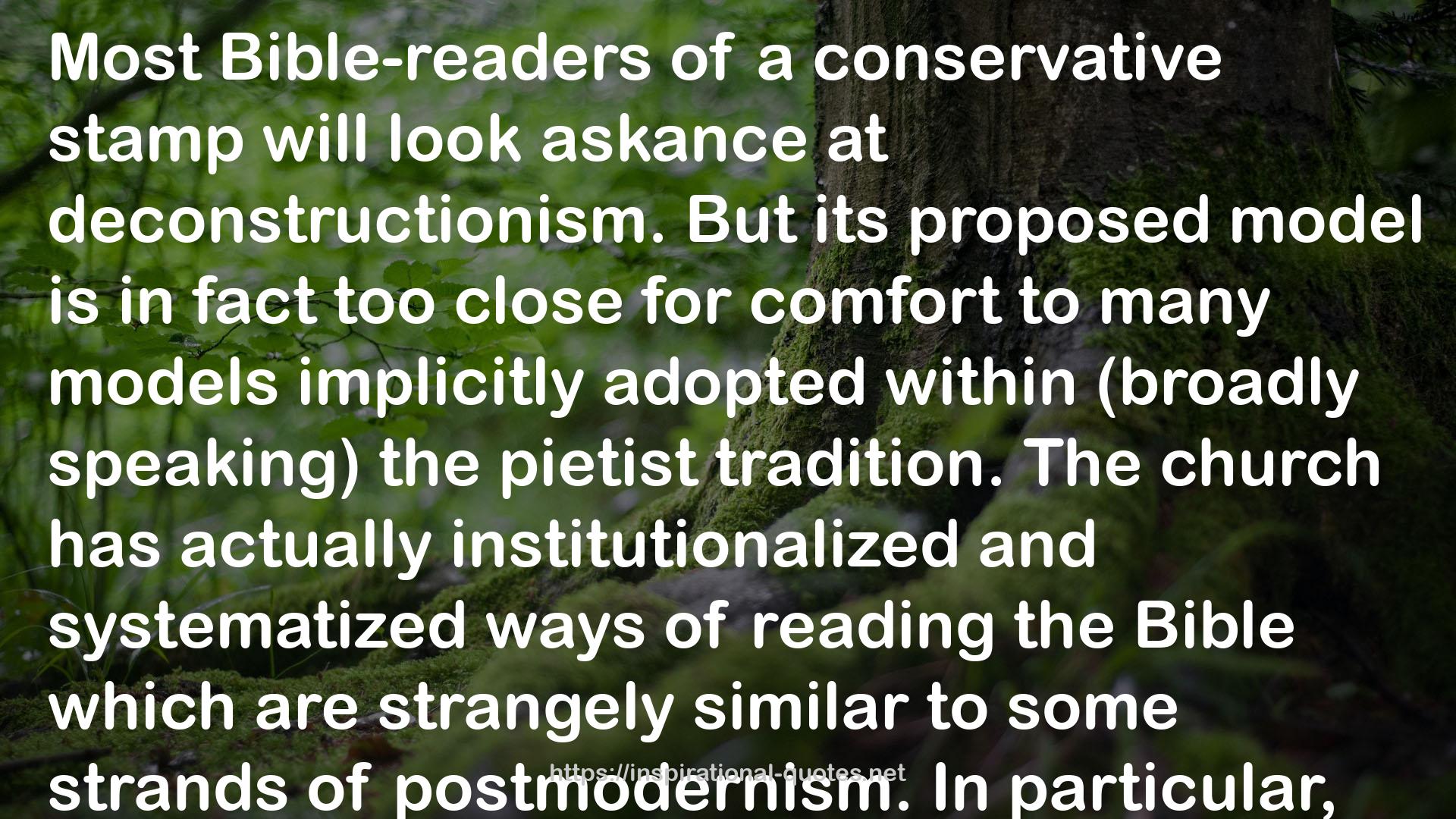" Most Bible-readers of a conservative stamp will look askance at deconstructionism. But its proposed model is in fact too close for comfort to many models implicitly adopted within (broadly speaking) the pietist tradition. The church has actually institutionalized and systematized ways of reading the Bible which are strangely similar to some strands of postmodernism. In particular, the church has lived with the gospels virtually all its life, and familiarity has bred a variety of more or less contemptible hermeneutical models. Even sometimes within those circles that claim to take the Bible most seriously—often, in fact, there above all—there is a woeful refusal to do precisely that, particularly with the gospels. The modes of reading and interpretation that have been followed are, in fact, functions of the models of inspiration and authority of scripture that have been held, explicitly or (more often) implicitly within various circles, and which have often made nonsense of any attempt to read the Bible historically. The devout predecessor of deconstructionism is that reading of the text which insists that what the Bible says to me, now, is the be-all and end-all of its meaning; a reading which does not want to know about the intention of the evangelists, the life of the early church, or even about what Jesus was actually like. There are some strange bedfellow in the world of literary epistemology. "
― N.T. Wright , The New Testament and the People of God (Christian Origins and the Question of God, #1)
